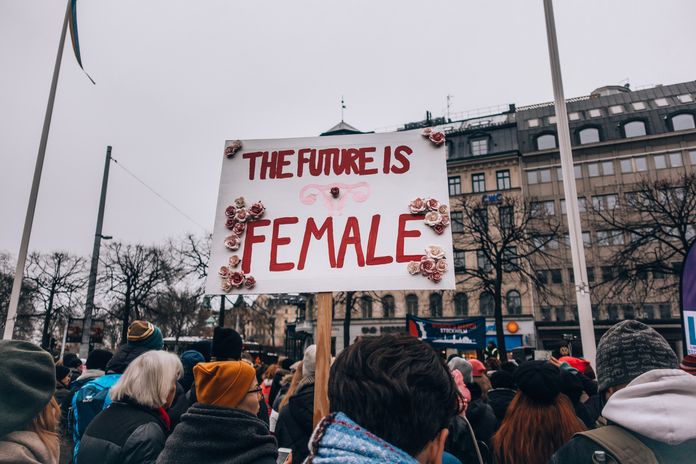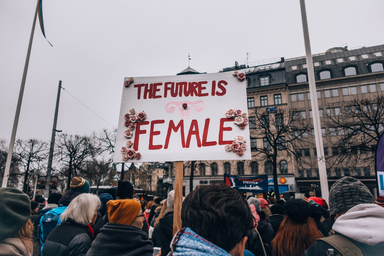I come from a mixed background, with my father being Hispanic and my mother being White. Growing up it was often hard for me to find role models that I could relate to, especially role models who were women and/or Hispanic. A recent study done in 2019 analyzed 100 top films from 2007-2018 and found that only three percent of films had Latino actors featured in lead or co-lead roles. However, an article by The New York Times discussed the U.S. Census Bureau data which highlighted that Hispanic people made up around 18.1 percent of the country’s population in 2017. This is just one example of how underrepresented the Latinx community is, and connects to the problem that I faced as a young girl and even as a young woman today. Finding role models, especially people who one can relate to, is difficult when there are obstacles such as underrepresentation in the media. So in honor of March being women’s history month, here are some strong and important Latina role models to learn more about.
Ellen Ochoa was born in 1958 and became an American astronaut and administrator. She studied electrical engineering at Stanford University, working up to earning her doctorate. During her work as a research engineer, Ellen patented several systems; some of which included optical systems that functioned to detect imperfections in repeating patterns, as well as recognizing objects. In 1993, she became the first Hispanic woman to travel to space, and later became the first Hispanic woman to serve as the director of the NASA Johnson Space Center. During her first space mission, she served as a mission specialist aboard the Discovery. She worked on experiments that tested how the Sun interacted with Earth’s atmosphere, as well as observing solar wind via satellite. Other space missions she worked on include the STS-66 Atlantis mission and the STS-96 Discovery mission. In her mission on the Discovery, she was a part of a crew that accomplished the first docking in the International Space Station. Additionally, Ellen was most recently appointed chairman of the National Science Board (in 2020), which also runs the National Science Foundation.
Sylvia Rivera from the Bronx, New York, was born in 1951, and would later become a prominent activist in the gay and transgender rights movement in the 1960s and 1970s. She participated in the Stonewall Riots in 1969, which are known as an important event that catalyzed the LGBTQ rights movement and has influenced it into today. Rivera helped established the Gay Liberation Front and the Street Transvestite Action Revolutionaries (STAR) organization. The Gay Liberation Front was formed shortly after the Stonewall Riots, which served as a way to use the momentum the Riots created and to push the agenda forward. STAR, a group co-founded with Marsha Johnson, worked to help support and empower gay, transgender and gender-fluid youth. Because of the complexity and diversity of Sylvia’s background, she also fought for racial, economic, and criminal justice issues. She had an immense impact on the LGBTQ rights movement and is known as one of the forerunners for establishing the “T” in LGBTQ.
Dolores Huerta was the leader of the Chicano civil rights movement and became a significant and influential figure in 20th-century labor activism. Dolores, born in 1930 in New Mexico, grew up being raised by her grandfather while her divorced mother juggled jobs. What started her career in activism was when she co-founded a chapter at the Community Service Organization, an organization that led voter registration drives and fought for economic improvements for Hispanic people. Through the CSO she met César Chávez, and together they created the National Farm Workers Association and later established the United Farm Workers’ Union. Dolores served as the vice president of the UFW until 1999 and worked on many issues during her time there. She organized workers, advocated for safe working conditions, and fought for agricultural workers to have unemployment and healthcare benefits. In 1973, Dolores led a powerful boycott against grapes which caused the significant California Agricultural Labor Relations Act of 1975 to be passed. This law allowed farmworkers to form unions and advocate for better wages and working conditions. Dolores ventured into working for improvement in workers’ legislative representation and electing Latinx people and women in public office.
To learn about even more powerful Latinas check out this interactive article by Google Arts & Culture.



